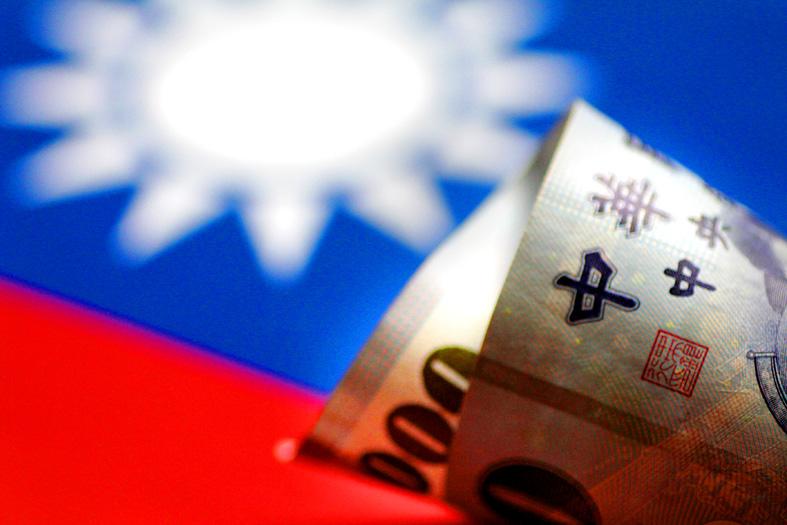Household income inequality in Taiwan widened last year due to effects of the COVID-19 pandemic, the Directorate-General of Budget, Accounting and Statistics (DGBAS) said on Friday.
DGBAS data showed that the average disposable income among the top 20 percent of households was NT$2.18 million (US$78,248) last year, up 1.8 percent from 2019, while the average for the bottom 20 percent was NT$355,000, up 1.4 percent.
The figure for the top 20 percent was 6.13 times higher than the figure for the bottom 20 percent, compared with 6.1 times higher in 2019, the data showed.

Photo: Reuters
The household income difference was the largest in eight years, the agency said.
DGBAS Minister Chu Tzer-ming (朱澤民) said that household income inequality increased because disadvantaged groups were disproportionately affected by pandemic-related pay cuts or unpaid leave programs.
Without government measures to reduce the gap, the top 20 percent would have 7.43 times more income than the bottom 20 percent, Chu said, referring to living subsidies and social insurance subsidies.
Household spending totaled NT$7.2 trillion last year, down 0.6 percent from a year earlier, or average household spending was NT$815,000, down 1.7 percent year-on-year, the DGBAS said.
However, average household savings rose 14.8 percent from a year earlier to NT$265,000 last year, DGBAS data showed.
The double-digit increase in savings reflected a fall in leisure spending at a time when border controls prompted people to cut overseas trips and many increased efforts to save money, the DGBAS said.

Sweeping policy changes under US Secretary of Health and Human Services Robert F. Kennedy Jr are having a chilling effect on vaccine makers as anti-vaccine rhetoric has turned into concrete changes in inoculation schedules and recommendations, investors and executives said. The administration of US President Donald Trump has in the past year upended vaccine recommendations, with the country last month ending its longstanding guidance that all children receive inoculations against flu, hepatitis A and other diseases. The unprecedented changes have led to diminished vaccine usage, hurt the investment case for some biotechs, and created a drag that would likely dent revenues and

Macronix International Co (旺宏), the world’s biggest NOR flash memory supplier, yesterday said it would spend NT$22 billion (US$699.1 million) on capacity expansion this year to increase its production of mid-to-low-density memory chips as the world’s major memorychip suppliers are phasing out the market. The company said its planned capital expenditures are about 11 times higher than the NT$1.8 billion it spent on new facilities and equipment last year. A majority of this year’s outlay would be allocated to step up capacity of multi-level cell (MLC) NAND flash memory chips, which are used in embedded multimedia cards (eMMC), a managed

CULPRITS: Factors that affected the slip included falling global crude oil prices, wait-and-see consumer attitudes due to US tariffs and a different Lunar New Year holiday schedule Taiwan’s retail sales ended a nine-year growth streak last year, slipping 0.2 percent from a year earlier as uncertainty over US tariff policies affected demand for durable goods, data released on Friday by the Ministry of Economic Affairs showed. Last year’s retail sales totaled NT$4.84 trillion (US$153.27 billion), down about NT$9.5 billion, or 0.2 percent, from 2024. Despite the decline, the figure was still the second-highest annual sales total on record. Ministry statistics department deputy head Chen Yu-fang (陳玉芳) said sales of cars, motorcycles and related products, which accounted for 17.4 percent of total retail rales last year, fell NT$68.1 billion, or

In the wake of strong global demand for AI applications, Taiwan’s export-oriented economy accelerated with the composite index of economic indicators flashing the first “red” light in December for one year, indicating the economy is in booming mode, the National Development Council (NDC) said yesterday. Moreover, the index of leading indicators, which gauges the potential state of the economy over the next six months, also moved higher in December amid growing optimism over the outlook, the NDC said. In December, the index of economic indicators rose one point from a month earlier to 38, at the lower end of the “red” light.